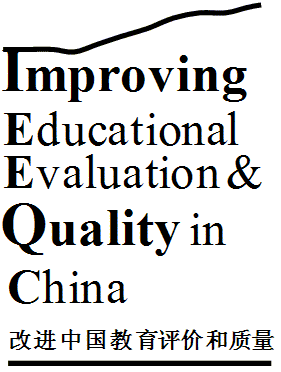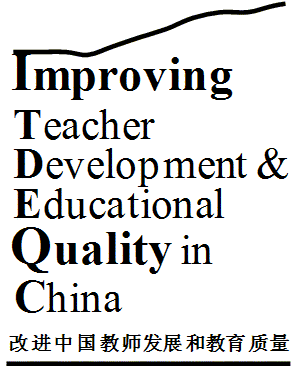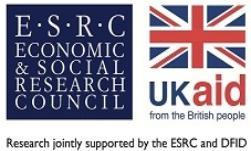IEEQC follow on project started on 1 May 2010: Improving Teacher Development and Educational Quality in China (ITDEQC): Examining Schools as Professional Learning Communities. For more information see ITDEQC project leaflet (PDF, 155kB).
IEEQC Project leaflet (PDF, 135kB)
Introduction
Improving Teacher Development and Educational Quality in China (ITDEQC) and Improving Educational Evaluation and Quality in China (IEEQC) are two linked research projects funded by UK Economic and Social Science Research Council (ESRC) and Department for International Development (DfID). The projects are led by the School of Education (GSOE) University of Bristol (UOB), in collaboration with National Institute for Education Sciences, Beijing (NIES, a state-level research institute for the educational sciences, formerly known as China National Institute for Educational Research, CNIER).
Taking place from May 2008 to April 2013 the projects will investigate the nature and extent of school effectiveness in China using innovative quantitative methodology (multilevel modeling) over a four year period as well as explore the local application of new school evaluation and teacher development methods to improve educational policy and practice in rural and urban senior secondary schools. The research seeks to promote the development of teacher and school quality as well as innovation in school evaluation using a variety of approaches. Guidelines for implementation will be supported via bottom-up and top-down dialogues involving key stakeholders such as policy makers, LEA officers, teachers and students. Understanding education and teacher quality and evaluation processes will also assist in achieving wider goals including social justice and cohesion and equal opportunities.
The aims of the IEEQC project
The study is an essential and timely investigation of the effectiveness and contextual features of schools in China as well as how innovative methods of school evaluation have been applied locally to educational policy and practice in rural and urban secondary schools. Broadly our aims are to enhance understanding of the complex nature of school effectiveness in China and how local context may play a key role in determining definitions of educational effectiveness and quality. We aim to provide new insights and extend current theories about:
- the impact of student characteristics, and classroom, school and contextual factors on students attainment and progress at school;
- the relevance of these factors in the evaluation of school performance in China;
- how western approaches to evaluating educational quality have been adapted and developed to take account of local contexts and priorities.
The aims of the ITDEQC project
To extend the school effectiveness findings of IEEQC project by examining the trends over four years using comparable data. The project also aims to investigate the nature and extent of teachers’ professional development and learning in China as well as the relevance of professional learning communities in Chinese schools to improve education quality. The project seeks to provide quality data to enhance understanding of teacher development and learning and how these aspects relate to school effectiveness and improvement in China.
Selected Quotes from IEEQC launch seminar 14th Oct 2008
"I would like to wish this very important project every success. I’ll be following with interest.”
Mr. Chris Godwin, Director of Research Councils UK office in Beijing
“I endorse ideas of the project. Educators need these kinds of methods to evaluate schools. Furthermore, we also need these kind of approaches to ensure that parents are aware and make rational judgments about his or her child’s transition to a higher level of education It is not fair to judge a school only by National University Entrance Examination Scores. It is the key to evaluate the relative progress of a student after several years of his/her study at the school. This is very important.”
Prof. Zhang Jingbin, Dean of Faculty of Education, Beijing Capital Normal University
“We have been looking forward to seeing the value added approach applied between schools. I think this methodology is really scientific. The present methodology we use does not take into consideration intake differences between schools, so weaker schools can not experience success. We welcome this approach.”
Mr. Huang Weimin, Headteacher of No.39 High School, Xi’an City
“Value added evaluation is of significance to school education in China. Currently school evaluation is based on entrance levels to higher education so value added evaluation would be helpful to solve this long-established problem.”
Dr Tian Hui, Deputy President, CNIER
“The IEECQ project is highly significant. Researchers with CNIER Center for Inspection and Evaluation have been participating in the project and my view is that it introduces a brand-new evaluation concept in the sense that that the mode of evaluation is extended from school external evaluation to include ideas about teacher quality and school internal evaluation, in order to enhance opportunities for all students to gain “value added” and develop assessment processes.”
Director Liu Fang, Director of Center for Inspection and Evaluation and concurrently Center for Basic Education, CNIER




